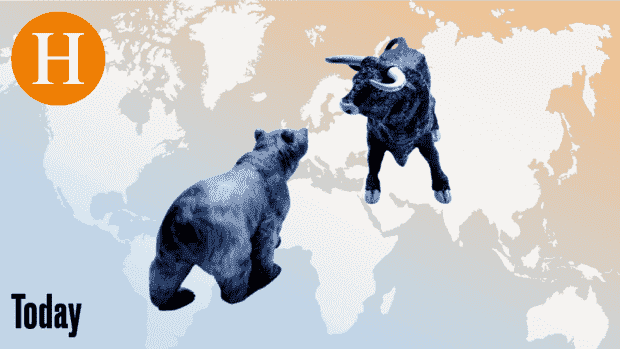Dusseldorf In view of the high inflation, the European Central Bank is increasingly under pressure to act. Inflation in the euro currency area rose to a record high of 5.1 percent at the beginning of the year. At today’s press conference, the ECB nonetheless announced that it would maintain its current monetary policy course.
The doves on monetary policy, such as ECB President Christine Lagarde and ECB Chief Economist Philip Lane, still believe that inflation rates will fall this year. But they, too, are now recognizing a risk that inflation could settle at a higher level than expected in the longer term. The ECB is therefore no longer completely ruling out active countermeasures for 2022. When asked about possible rate hikes, Lagarde replied that the ECB’s decisions were guided by the data.
In December it sounded very different. At that time, she had still described interest rate increases in 2022 as “very unlikely”, i.e. virtually ruled them out. So the bottom line is that the ECB is sticking to its loose monetary policy, but at least is signaling that it recognizes the seriousness of the situation and – if necessary – is ready to react.
For Fidelity capital market strategist Carsten Roemheld, this is a first step in the right direction. However, the ECB should not wait much longer before taking action. In an interview, he explains why the central bank is already lagging behind and what significance the decision to maintain a loose monetary policy has for the markets.
Top jobs of the day
Find the best jobs now and
be notified by email.
We have an exclusive subscription offer for you as a Handelsblatt Today listener. Interested? Then take a look here.
If you have any comments, questions, criticism or praise for this episode, please email us at: [email protected]
